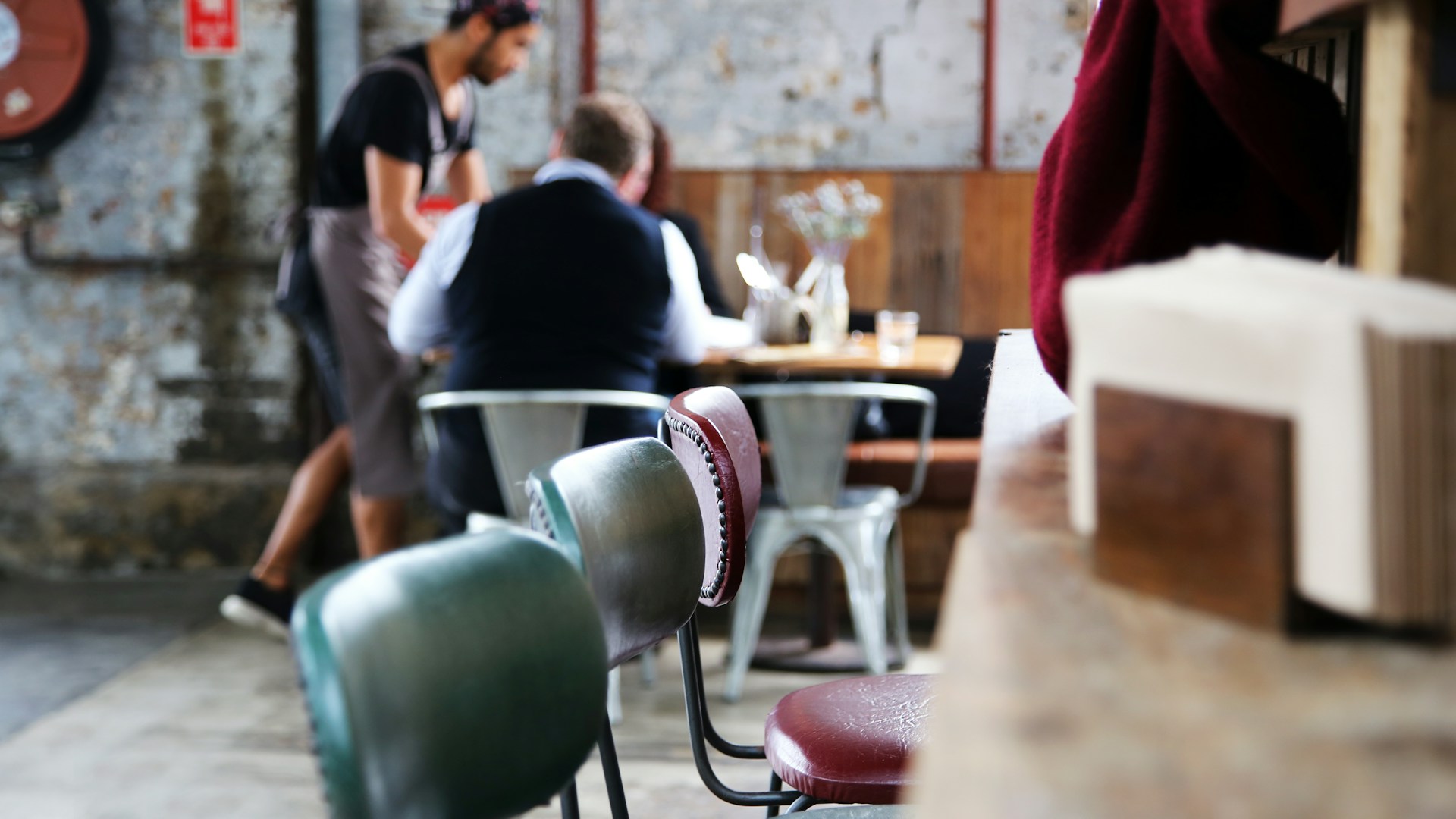Hospitality and Leisure Sector Worried

Hospitality and leisure sector worried for the New Year without Christmas cash reserves
Operators within the hospitality and leisure sector scrabble to retain staff and their businesses for the second year after last-minute restrictions put a stop to festivities for many across the UK.
Post-Christmas restrictions on the hospitality and leisure sector in Scotland, Wales and Northern Ireland could push further businesses to the brink after festive trading was decimated due to Omicron concerns.
For many hospitality and leisure sector operators, the festive period makes up a sizeable chunk of the year’s profit and with January a traditionally quiet month for the industry, there are fears ‘dry January’, where many people give up alcohol for the month, could further dampen trade. This is on top of ongoing staffing shortages and issues related to Brexit, with full customs controls in place since 1 January 2022.
An immediate increase in financial support and the lifting of trading restrictions is urgently needed to prevent Welsh hospitality businesses closures and job losses, UKHospitality Cymru warned. “Across the board, enforced sub-viable trading and the associated cautionary climate has fuelled a festive flop in our pubs, restaurants, hotels and wider hospitality,” said David Chapman, executive director of UKHospitality Cymru.
Venues in Wales saw the introduction of restrictions from 26 December, such as the return of the ‘rule of six’ and mandatory face coverings, with a £120m package announced for affected businesses. “A disastrous Christmas and New Year under the latest restrictions has left many facing a perilous financial position with grants falling way short of what is needed. In particular, retaining staff on current government supports is unsustainable. Nightclubs in Wales are closed but are expected to keep a full staff roster, for maybe as long as two months, with a grant that doesn’t even amount to a busy night’s takings,” added Chapman.
“Their English counterparts are reporting falling footfall and heavy losses even without the stringent additional set of restrictions being imposed in Wales – revenue is at least 25% lower than across the border at present. If financial support isn’t swiftly forthcoming, grave commercial impacts are inevitable, which will hugely damage communities across Wales.”
Edmund Inkin, co-owner of the Felin Fach Griffin near Brecon in Powys, said business was “busier than expected” and there were “enough people to keep things busy”, however for many operators, particularly in urban areas, the last six to eight weeks had been “miserable” and applications for funding were not expected to open until 17 January.
“For those who really are desperate for cash and for whom December didn’t materialise, this lack of speed is fairly fundamental. Albeit that the amounts are small compared to the fixed cost of a venue,” he said. He added that many rural operators were closing during January as business simply wasn’t going to be busy enough. He suggested the reintroduction of furlough would help address wage costs: “Paying our people when they’re not working or not able to work because places are effectively closed, that’s the problem for people.”
On the other hand, he estimated that self-isolating meant around 10% of his workforce were absent, and with the sector plagued with staffing issues already, he predicted staffing shortages will be prevalent come peak season.
In Scotland, Edinburgh’s Hogmanay street party was cancelled with all outdoor events reduced to a capacity of 500 people and nightclubs forced to close from 27 December. The changes, which will be in place for at least three weeks, also saw pubs and other hospitality venues selling alcohol return to table service and one-metre social distancing.
Nightclubs in Northern Ireland had to close on Boxing Day, and since 27 December hospitality businesses have been restricted to table service only, limited to a maximum of six people, or 10 people from a single household, on top of the requirement for guests to provide Covid certificates.
The Executive announced one-off grants for venues up to £20,000 depending on their rateable value – but hotels were excluded, and funds were not expected to be paid for another two weeks.
“While we’d like it to be as quick as possible, the important thing is people know it’s coming and what the value is,” Hospitality Ulster chief executive Colin Neill told The Caterer, who added that the group was lobbying for hotels to be included in the support package. “An awful lot of hotels are food and beverage-led,” he said.
The group estimated that the hospitality and leisure sector in Northern Ireland lost around £250m-£300m during the Christmas period.
“We’re into this quarter, the VAT bills are due, your loan bills are due, we’re heading towards possibly full VAT at the end of March, we’re looking at the rental protections ending – all of those make for a very nervous industry and people are really worried about their survival,” said Neill.
According to UKHospitality, pubs, bars and restaurants lost an average of £10,335 in the week leading up to Christmas, with sales on the day itself down 60% on 2019. Hospitality sales for the month of December were down 12% compared to December 2019 across the UK, according to S4labour. Both drink and food sales experienced declines, with sales down 11.5% and 13%, respectively, on 2019 levels.
London sales were hit the hardest as like-for-likes fell by 23% compared to 2019. Sites outside the capital also saw a drop of 10%. London sales fell on all occasions, with Christmas Eve sales down 38%, Christmas Day down 23.5%, Boxing Day down 25% and New Year’s Eve down 11.5%.
Maria Constantinou, owner of the Arts Theatre Club nightclub in London’s Soho, has meanwhile not seen any of the grants of up to £6,000 promised to businesses in England, which are being distributed through local councils: “I don’t know of anyone in Soho that has had it. There is no sign of [that payment] and no one to contact at the council about it, the process is not good.”
She said she was hopeful there would be a bounce back now the festive period was over: “We didn’t sell any New Year tickets until the last day. But the show must go on, we still have to pay rent – landlords are not giving us any breaks now. Any money we have saved up we are using to pay our bills.”
She said the return of Soho’s popular alfresco scheme, which is subject to a consultation, would be vital to help hospitality businesses recoup their losses in the summer. “We have to start paying coronavirus loans back in May, and if we can open outside it would help our recovery,” she added.
Andy Dempster, operations director at Romet Group, which runs eight restaurants including the Figo and Pivaz brands in east London and Essex, said uncertainty made it “impossible” for operators to plan ahead after a tough December.
He said: “For New Year’s Eve we had cancellations then a raft of bookings, so it was OK but nowhere near what it should have been. How can we strategise or plan forward? It’s hard. We can’t predict how many staff we will need to hire or how busy we’ll be. We normally have a 12-18 month plan, now we’ve got a four-week plan.”
He added: “That’s what’s really affecting most businesses. Big companies that are well-financed can roll with it, as a smaller company everything we do is revenue generated. If we have no revenue, it makes it difficult.
“We were looking to open new restaurants in 2021 but we didn’t get to in the way we’d hoped. We don’t want to invest £1m in an opening for it to be shut down.”
Wildwood and Dim T operator Tasty said that December, normally the company’s strongest performing month, had been “disappointing” and “considerably weaker than anticipated”.
Four of its 54 restaurants have remained closed due to predicted poor trading and labour shortages, and although they are expected to reopen later in the year, the company said it would continue to consider the sale of two or three of the sites.
However, health minister Gillian Keegan suggested further support for hospitality was not necessary as restaurants were “pretty full”.
The Conservative MP for Chichester told Sky News last week: “We put a £1b package of measures in place just before this period, but I’ve been out a couple of times, my sister’s over from the States so we have been out to a couple of restaurants and they’ve been pretty full… people are still going out they’re just taking a lateral flow test before and obviously being a bit more cautious.”
The original version of this article was first published in The Caterer News
We are a hospitality and catering recruitment agency.. Are you struggling with your Hospitality and Catering Staff Recruitment at your restaurant? Maybe we can help or if you are looking for a hospitality or catering job, take a look at our latest vacancies.


